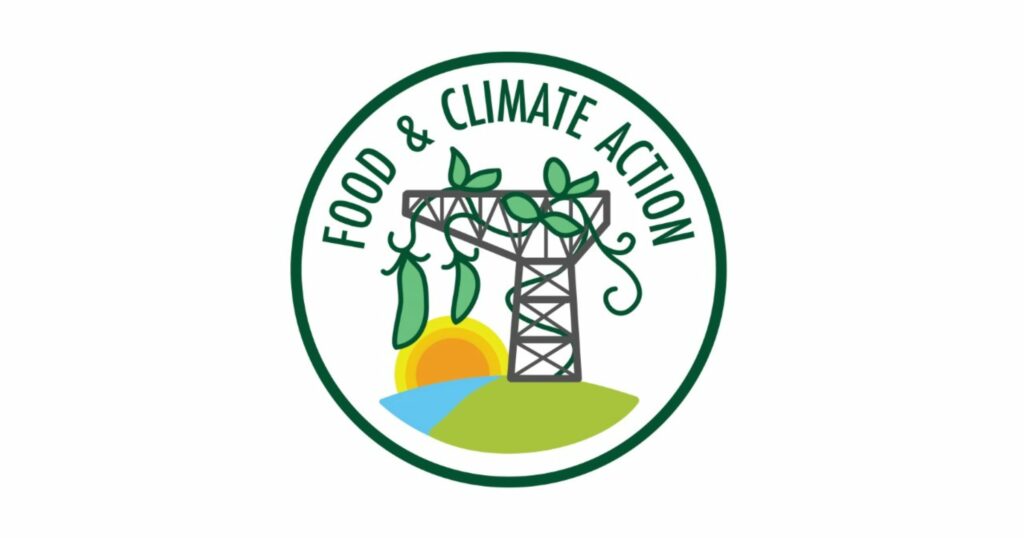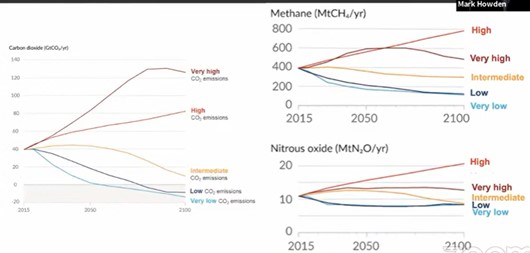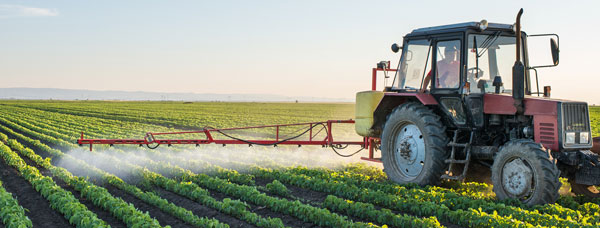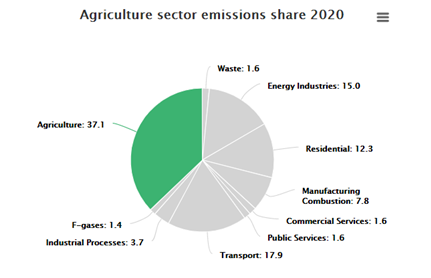IFIAD Annual Conference 2021 – A Year for Action: Food and Climate

Key issues raised at the IFIAD 2021 Annual Conference
As a student of the MSc in Climate Change, Agriculture and Food Security at NUIG, I had the opportunity to attend the IFIAD 2021 Annual Conference on the 20th of October 2021. The conference focused on issues surrounding climate change and food security following the Food Systems Summit and ahead of COP26 which is due to take place on the 31 October to 12 November 2021.
Firstly, the UN Food System Summit was presented by Maximo Torero Cullen who highlighted the severity of global food security which was heightened due to the Covid-19 pandemic in 2020. The main action areas of the Food Summit were also highlighted the five action areas, as shown in Figure 1 below, which include Nourishment, Solutions, Advancement of Livelihoods and Communities, Building Resilience and Implementation. He also suggested that food security can be best achieved through the formation of coalitions and member state pathways. An example of a member state pathway in Ireland is the Food Vision 2030 Strategy that aims to balance economic, social and environmental sustainability under a holistic Food Systems approach over the next decade (Department of Agriculture, Food and the Marine, 2021).

Another key issue that was discussed by Professor Mark Howden is the influencers of climate change. Firstly, Mark discussed the influence of humans on global temperature, as shown in Figure 2 below. Notably temperature change is significantly larger from humans than that of natural resources. Mark also comments on the increasing global greenhouse gas (GHG) concentrations, shown in Figure 3, which are much higher than previous years and are predicted to continue to increase into the next century. It was a common theme amongst all panellist that global warming is a large area of concern especially when the combination of increasing temperatures and GHG concentrations can alter the climate in certain regions. Such examples include the Artic Sea ice melt, glacial retreat and rising sea levels, it also leads to the increased likelihood of extreme weather events such as drought, flooding, extreme heat and increased rainfall.


Areas of polarisation and lack of consensus identified at the IFIAD 2021 Annual Conference
Professor Mark Howden suggested that one way to reduce GHG emissions and avoid global warming is by changing our diets, effectively consuming less animal products. The change to more plant-based diets is becoming increasingly popular in recent years, especially with the new challenge of Veganuary which challenges people to go vegan for the month of January. Vegan diets have many benefits such as increasing nutrients in the human diet, improving health and longevity as well as environmental benefits. However, the negatives of increasing plant-based diets should also be considered such as nutrient deficiencies and increased chemical and fertilizer use which are less talked about.

Therefore, the increasing popularity of plant-based diets also poses the question; is fertilizer use on the rise?. According to Lu & Tian (2017) and Bannon & Weersink (2019), the short answer is yes. The combination of increasing global population and the shift towards plant-based diets, will require more cropland and increased crop yields which will still contribute to GHG emissions. Another point to consider is the increasing use of chemicals such as pesticides, insecticides, and herbicides needed to increase crop yields and avoid losses to invasive plant species.
Key issues for the Food Systems Summit and COP26 that were not discussed at the IFIAD 2021 Annual Conference
One of the main issues that were not discussed in such detail is the loss and damage caused to crops and land in areas that are most susceptible to climate impacts such as drought, flooding, sea-level rise etc. These issues were briefly touched on among the panellists at the IFIAD annual conference and the issue has always been a thorny issue at COP and is expected to remain a thorny issue at COP26.
As Pippa Hackett stated “farmers more than most, are very sensitive to the impacts of these more extreme weather conditions, they understand first-hand how the extremes of rain or drought or storm force winds affect their production systems and indeed their livelihoods”
Following on from Minister Hackett, who stated that farmers are the ones who understand the impacts of these weather conditions more than anyone, yet it seems as though they are the most ignored and heavily blamed when it comes down to it. There is a huge lack of support, guidance, and financing in this area. Generally, funding is ignored in many aspects of the agricultural sector; for loss and damage there are no grants, emergency funds or adaptation funds available to famers. As mentioned above, there is a movement towards plant-based diets in the near future which would also require funding for land changes, soil inputs and much more. A major issue that I have noticed over the years, is the miscommunication between governments and farmers, particularly in Ireland. As climate change becomes an increasing global issue, the blame is always on farmers since the agricultural industry is the largest contributor to emissions in Ireland, accounting for 37.1%, as shown in Figure 4 below. (EPA, 2020). One topical discussion that was not raised at the conference is the large list of rules and regulations that farmers have to follow in order to move towards a circular economy. Further to the miscommunication issues, more recent events showed farmers protesting over the new climate action under the CAP, which according to the Irish Farmers Association (IFA) the purpose of the protest was “to emphasise the importance of agriculture in rural towns” (Kelleher, 2021). However, there were many farmers at that protest that were misinformed and believed they were somehow protesting against the entire effects of climate change.

To view the full IFIAD 2021 Annual Conference click here.
Bibliography
Bannon, N. & Weersink, A., 2019. Fertilizer use on the rise?, Guelph: Department of Food, Agriculture and Resource Economics.
Department of Agriculture, Food and the Marine, 2021. Food Vision 2030 – A World Leader in Sustainable Food Systems. [Online]
Available at: https://www.gov.ie/en/publication/c73a3-food-vision-2030-a-world-leader-in-sustainable-food-systems/
[Accessed 26 October 2021].
EPA, 2020. Agriculture. [Online]
Available at: https://www.epa.ie/our-services/monitoring–assessment/climate-change/ghg/agriculture/#:~:text=In%20Ireland%20the%20Agriculture%20sector%20was%20directly%20responsible,of%20greenhouse%20gas%20emissions%20in%20Ireland%20in%202019
[Accessed 27 October 2021].
Kelleher, O., 2021. Farmers protest in tractors around country over Cap proposals. [Online]
Available at: https://www.irishtimes.com/news/environment/farmers-protest-in-tractors-around-country-over-cap-proposals-1.4590748
[Accessed 27 October 2021].
Lu, C. & Tian, H., 2017. Global nitrogen and phosphorus fertilizer use for agriculture production in the past half century: shifted hot spots and nutrient imbalance. Earth System Science Data, 9(1), p. 181–192.
World Wide Fund for Nature, 2021. Expectations on Loss and Damage at COP26. [Online]
Available at: https://wwfint.awsassets.panda.org/downloads/wwf_expectations_on_loss___damage_at_cop26.pdf
[Accessed 27 October 2021].